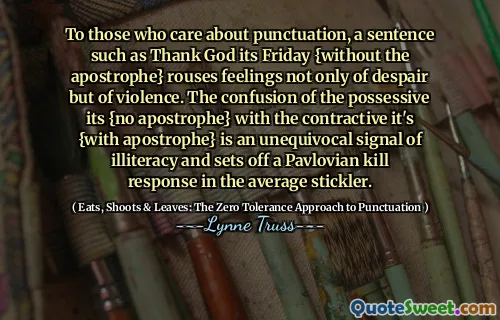
one might dare to say that while the full stop is the lumpen male of the punctuation world {do one job at a time; do it well; forget about it instantly}, the apostrophe is the frantically multi-tasking female, dotting hither and yon, and succumbing to burnout from all the thankless effort.
In her book "Eats, Shoots & Leaves," Lynne Truss uses vivid imagery to characterize punctuation marks. She likens the full stop to a simplistic, unassuming male figure that performs a singular task efficiently but is quickly forgotten. This comparison underscores the straightforward purpose of a full stop in writing: to mark the end of a sentence.
Conversely, Truss portrays the apostrophe as a dynamic, overburdened female that juggles multiple roles in language. This multitasking persona highlights the complexities and demands associated with using the apostrophe, suggesting that its constant presence can lead to fatigue and frustration. Through this analogy, Truss emphasizes the importance and challenges of mastering punctuation.











